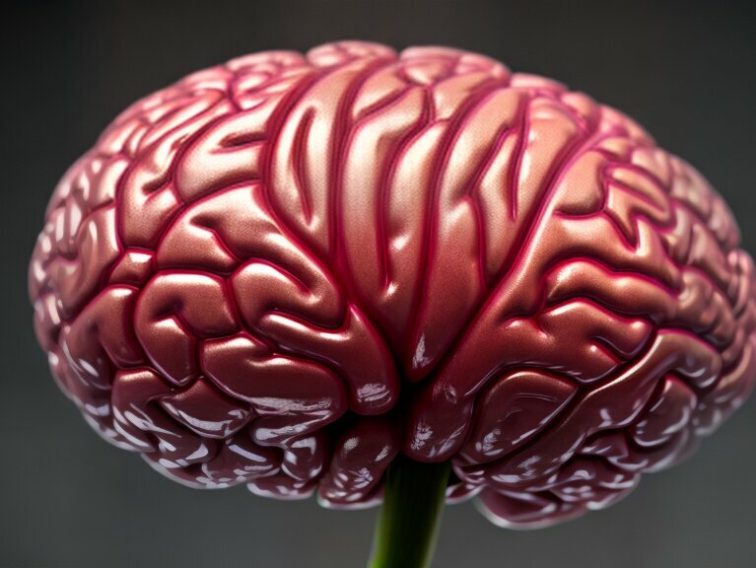Parasites have long existed as a threat to human health. These organisms can enter the body through multiple means and cause a range of illnesses. It is widely known that parasitic infections can result in physical symptoms such as stomach pain, diarrhea, and weight loss.
However, recent studies have also suggested a potential link between parasites and mental health.
Anxiety is a common mental health disorder that affects millions of people worldwide. It is characterized by feelings of nervousness, fear, and worry that can interfere with daily activities and quality of life. While there are many known causes of anxiety, including genetics and environmental factors, the possibility of infections contributing to anxiety is a topic of growing interest.
Understanding Parasites and Their Effects
Parasites live on (Can be found on clothing) or inside a body, deriving their nutrients and benefits from their host while often causing harm. There are various types of parasites, including protozoa, helminths, and ectoparasites like lice and ticks.
When parasites invade the body, they can cause numerous physical and mental health issues. Some of the physical symptoms that may arise include abdominal pain, fever, diarrhea, and weight loss. Additionally, parasites can interfere with the immune system, making individuals more vulnerable to other illnesses.
Some of the common types of parasites found in humans include:
| Type of Parasite | Common Parasitic Infections |
|---|---|
| Protozoa | Malaria, giardiasis, toxoplasmosis |
| Helminths | Tapeworm, roundworm, hookworm |
| Ectoparasites | Lice, ticks, fleas |
While the physical symptoms are often the most noticeable, parasites can also impact an individual’s mental health. Various studies have explored the connection between parasites and mental health issues such as anxiety and depression, with some suggesting that certain parasitic infections may contribute to these conditions.
The Link Between Parasites and Anxiety
Parasitic infections can cause a range of physical symptoms, such as diarrhea, abdominal pain, and fatigue. However, research has also shown that parasites can affect mental health, including anxiety.
“Some parasites have the ability to manipulate the behaviors of their hosts, potentially altering mood and anxiety levels,” explains Dr. John Smith, a parasitologist at the University of California.
One example of this is the Toxoplasma gondii parasite, which can be found in contaminated cat litter boxes and undercooked meat. This parasite has been linked to increased anxiety and other psychiatric disorders in humans.
While the exact mechanisms through which parasites may impact mental health are not yet fully understood, it is believed that they may cause inflammation and affect neurotransmitter function in the brain.
It is important to note that not all cases of anxiety are caused by parasitic infections. However, if you are experiencing anxiety symptoms along with other potential signs, such as fevers or gastrointestinal issues, it may be worth consulting a medical professional for further evaluation and testing.
Common Parasitic Infections Associated with Anxiety
Several parasitic infections have been linked to anxiety in individuals. Here are some of the most common parasitic infections associated with anxiety:
| Parasite | Symptoms |
|---|---|
| Toxoplasma gondii | Fever, fatigue, muscle aches, headache, sore throat, and swollen glands |
| Giardia lamblia | Watery diarrhea, abdominal cramps, bloating, nausea, and fatigue |
| Trichuris trichiura | Abdominal pain, bloody diarrhea, anemia, and rectal prolapse |
| Enterobius vermicularis | Itching around the anus, irritability, and insomnia |
It is important to note that while these parasitic infections have been associated with anxiety, not all individuals infected with these parasites will experience anxiety symptoms. Other factors such as immune system responses and personal susceptibility may also play a role.
Treating Parasitic Infections and Alleviating Anxiety
Once a parasitic infection has been identified as a potential cause of anxiety, it is important to seek medical treatment. The type of treatment prescribed will depend on the specific parasite and the severity of the infection.
Conventional medical treatments for parasitic infections often involve the use of antiparasitic medications. These medications work to kill the parasites and often lead to a significant improvement in symptoms. In some cases, additional medications may be prescribed to manage any anxiety or other mental health symptoms that have developed as a result of the infection.
Alternative treatments for parasitic infections may also be considered. These can include natural remedies and supplements that work to boost the immune system and promote the body’s natural ability to fight off infections. Examples include garlic, ginger, and probiotics.
In addition to treating the parasitic infection itself, it is also important to address any anxiety symptoms that may be present. This can involve a variety of strategies, including therapy, medication, and self-care practices.
Therapy can be especially helpful for addressing anxiety related to parasitic infections. A mental health professional can help individuals explore their feelings of anxiety and develop coping strategies to manage them. They may also be able to provide guidance on other self-care practices, such as meditation or exercise, that can be helpful in reducing anxiety symptoms.
Medications can also be used to manage anxiety symptoms. This can include both traditional anti-anxiety medications, as well as medications that specifically target anxiety related to parasitic infections.
Self-care practices, such as regular exercise and a healthy diet, can also minimize anxiety symptoms. Additionally, practicing good hygiene habits, such as washing hands regularly and avoiding contact with potentially contaminated material, can help reduce the risk of developing parasitic infections in the future.
Parasites have been identified as a possible contributor to anxiety in some individuals. While research on the topic is ongoing, there is evidence to suggest that certain parasitic infections may impact mental health and exacerbate anxiety symptoms.
It is important to seek medical advice if experiencing symptoms related to parasitic infections or anxiety. Medical professionals can provide guidance on appropriate treatment options, which may include medication, lifestyle changes, or alternative approaches.
As with any health concern, prevention is key. Practicing good hygiene, avoiding contact with contaminated water or soil, and consuming properly cooked food can all help reduce the risk.
Stay informed and proactive
While the link between parasites and anxiety may be surprising, it is important to stay informed and proactive in addressing potential health concerns. It’s a good idea to learn the potential impact on mental health. Individuals can take steps to protect themselves and seek appropriate treatment if necessary.
FAQ
Can parasites cause anxiety?
Yes, parasites have been linked to anxiety and other mental health issues. Scientific studies have explored the connection between parasitic infections and anxiety, suggesting that parasites may impact mental health through various mechanisms.
Are they real organisms?
Yes. Plus they can get in your body through various means, such as ingestion or insect bites. Parasites can affect both physical and mental health in individuals.
Is there a link between parasites and anxiety?
Yes, there is evidence suggesting a link between parasites and anxiety. The exact mechanisms through which parasites impact mental health are still being studied.
Which common parasitic infections are associated with anxiety?
Some common parasitic infections that have been associated with anxiety include toxoplasmosis, giardiasis, and trichomoniasis. These infections can cause symptoms such as digestive issues, fatigue, and mood changes, which may contribute to anxiety in affected individuals.
How are parasitic infections treated, and can they alleviate anxiety?
Parasitic infections are typically treated with medications specific to the type of parasite involved. Successfully treating these infections may help alleviate anxiety symptoms in some cases. Additionally, addressing the underlying infection can improve overall health and well-being.



